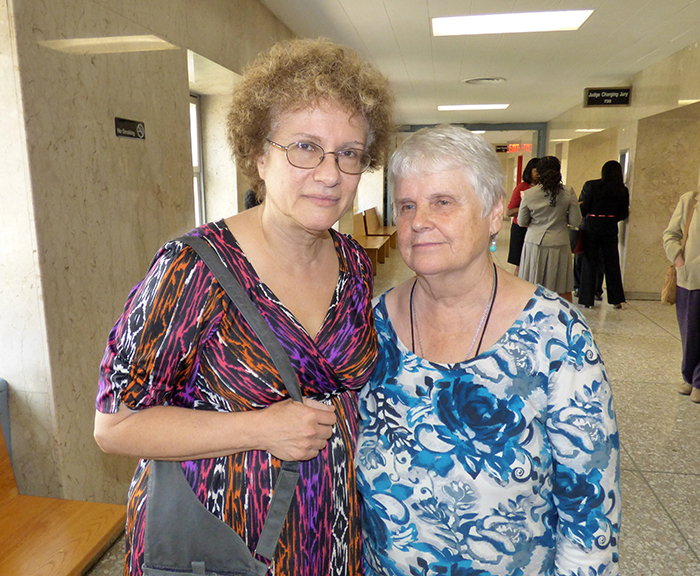Brooklyn judge rules seniors at Prospect Park Residence can have their day in court
Dismisses arguments by Deitsch and DOH

Dr. Joyce Singer, left, daughter of one of the residents, and Nancy Richardson, who visits her friend at the Prospect Park Residence every week, attended a hearing about the seniors’ plight in June. Photo by Mary Frost
Seven very old but determined residents of the Prospect Park Residence, an embattled assisted living facility in Park Slope, were handed a victory in court last Thursday when a Brooklyn judge denied a motion made by their landlord and the state Department of Health (DOH) to dismiss their many complaints.
Instead, state Supreme Court Justice Wayne Saitta dismissed almost every argument by the facility’s owner, Haysha Deitsch, and the DOH in his ruling.
The seven seniors are the only remaining residents of the once-flourishing facility located across the street from Prospect Park. Deitsch has been trying to empty the building in order to sell it to a developer for more than a year.
